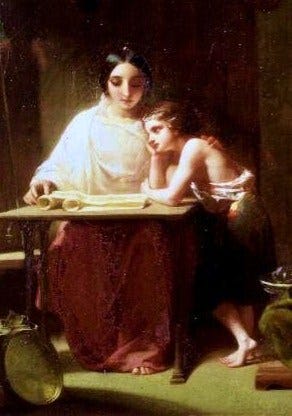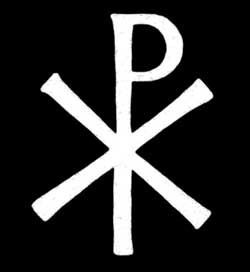Blessed are those whose way is blameless,
who walk in the law of the LORD!
Blessed are those who keep his testimonies,
who seek him with their whole heart.
You have commanded your precepts
to be kept diligently.
Oh that my ways may be steadfast
in keeping your statutes!
Psalm 71:15-18

Blessed Saturday! May the peace of Our Lord Jesus be with you and yours.
The hymn of the day for The Sixth Sunday after Epiphany according to the Three-Year Lectionary follows. Check out Isaiah 61:1-3; 1 Peter 1:20; Matthew 11:4-5; and Revelation 19:1-16 as well.
Songs of thankfulness and praise,
Jesus, Lord, to thee we raise,
Manifested by the star
To the sages from afar,
Branch of royal David's stem
In Thy birth at Bethlehem:
Anthems be to Thee addressed,
God in man made manifest.
Manifest at Jordan's stream,
Prophet, Priest, and King supreme;
And at Cana wedding guest
In Thy Godhead manifest;
Manifest in pow'r divine,
Changing water into wine;
Anthems be to Thee addressed,
God in man made manifest.
Manifest in making whole
Palsied limbs and fainting soul;
Manifest in valiant fight,
Quelling all the devil's might;
Manifest in gracious will,
Ever bringing good from ill;
Anthems be to Thee addressed,
God in man made manifest.
Sun and moon shall darkened be,
Stars shall fall, the heav'ns shall flee;
Christ will then like lightning shine,
All will see His glorious sign;
All will then the trumpet hear,
All will see the Judge appear;
Thou by all wilt be confessed,
God in man made manifest.
Grant us grace to see Thee, Lord,
Present in Thy holy Word–
Grace to imitate Thee now
And be pure, as pure art Thou;
That we might become like Thee
At Thy great epiphany
And may praise Thee, ever blest,
God in man made manifest.
LSB 394
Almighty God, grant us a steadfast faith in Jesus Christ, a cheerful hope in Your mercy, and a sincere love for You and one another; through Jesus Christ, our Lord. Amen.
“You shall therefore lay up these words of mine in your heart and in your soul, and you shall bind them as a sign on your hand, and they shall be as frontlets between your eyes. You shall teach them to your children, talking of them when you are sitting in your house, and when you are walking by the way, and when you lie down, and when you rise. You shall write them on the doorposts of your house and on your gates, that your days and the days of your children may be multiplied in the land that the Lord swore to your fathers to give them, as long as the heavens are above the earth.”
Deuteronomy 11:18-21
Join us as we follow the path laid out by The Story Bible (Concordia Publishing House). Our new adventure continues with Abraham and Sarah.
▪ God Calls Abram Genesis 12
▪ Abram Rescues Lot Genesis 13-14
▪ God’s Covenant with Abram Genesis 15; 17
▪ Abraham’s Visitors from Heaven Genesis 18
Introducing the Books of the Bible — Pr. Bryan Wolfmueller
The Lutheran Study Bible (CPH) teaches:
Conflict arises between Abram’s and Lot’s herdsmen. Abram—for the sake of peace within the clan—decides they need to part and relinquishes to Lot the right of first choice. What an example Abram sets for true, godly living, an example Christ Himself shows. Though Christ was God, He counted humanity better than Himself, taking the form of a servant that we might be treated like kings and queens! By His self-sacrificing, humble service in our place, we are reconciled with God.
Lord God, teach us, by Abram’s example, how to love as we have been loved and how to serve as we have been served. Amen.
Genesis 13:1-18, 14:8-20, Abram Rescues Lot
13 So Abram went up from Egypt, he and his wife and all that he had, and Lot with him, into the Negeb.
2 Now Abram was very rich in livestock, in silver, and in gold. 3 And he journeyed on from the Negeb as far as Bethel to the place where his tent had been at the beginning, between Bethel and Ai, 4 to the place where he had made an altar at the first. And there Abram called upon the name of the Lord. 5 And Lot, who went with Abram, also had flocks and herds and tents, 6 so that the land could not support both of them dwelling together; for their possessions were so great that they could not dwell together, 7 and there was strife between the herdsmen of Abram's livestock and the herdsmen of Lot's livestock. At that time the Canaanites and the Perizzites were dwelling in the land.
8 Then Abram said to Lot, “Let there be no strife between you and me, and between your herdsmen and my herdsmen, for we are kinsmen. 9 Is not the whole land before you? Separate yourself from me. If you take the left hand, then I will go to the right, or if you take the right hand, then I will go to the left.” 10 And Lot lifted up his eyes and saw that the Jordan Valley was well watered everywhere like the garden of the Lord, like the land of Egypt, in the direction of Zoar. (This was before the Lord destroyed Sodom and Gomorrah.) 11 So Lot chose for himself all the Jordan Valley, and Lot journeyed east. Thus they separated from each other. 12 Abram settled in the land of Canaan, while Lot settled among the cities of the valley and moved his tent as far as Sodom. 13 Now the men of Sodom were wicked, great sinners against the Lord.
14 The Lord said to Abram, after Lot had separated from him, “Lift up your eyes and look from the place where you are, northward and southward and eastward and westward, 15 for all the land that you see I will give to you and to your offspring forever. 16 I will make your offspring as the dust of the earth, so that if one can count the dust of the earth, your offspring also can be counted. 17 Arise, walk through the length and the breadth of the land, for I will give it to you.” 18 So Abram moved his tent and came and settled by the oaks of Mamre, which are at Hebron, and there he built an altar to the Lord.
8 Then the king of Sodom, the king of Gomorrah, the king of Admah, the king of Zeboiim, and the king of Bela (that is, Zoar) went out, and they joined battle in the Valley of Siddim 9 with Chedorlaomer king of Elam, Tidal king of Goiim, Amraphel king of Shinar, and Arioch king of Ellasar, four kings against five. 10 Now the Valley of Siddim was full of bitumen pits, and as the kings of Sodom and Gomorrah fled, some fell into them, and the rest fled to the hill country. 11 So the enemy took all the possessions of Sodom and Gomorrah, and all their provisions, and went their way. 12 They also took Lot, the son of Abram's brother, who was dwelling in Sodom, and his possessions, and went their way.
13 Then one who had escaped came and told Abram the Hebrew, who was living by the oaks of Mamre the Amorite, brother of Eshcol and of Aner. These were allies of Abram. 14 When Abram heard that his kinsman had been taken captive, he led forth his trained men, born in his house, 318 of them, and went in pursuit as far as Dan. 15 And he divided his forces against them by night, he and his servants, and defeated them and pursued them to Hobah, north of Damascus. 16 Then he brought back all the possessions, and also brought back his kinsman Lot with his possessions, and the women and the people.
17 After his return from the defeat of Chedorlaomer and the kings who were with him, the king of Sodom went out to meet him at the Valley of Shaveh (that is, the King's Valley). 18 And Melchizedek king of Salem brought out bread and wine. (He was priest of God Most High.) 19 And he blessed him and said,
“Blessed be Abram by God Most High,
Possessor of heaven and earth;
20 and blessed be God Most High,
who has delivered your enemies into your hand!”And Abram gave him a tenth of everything.
Here are a few notes, some are paraphrased from TLSB:
13:3-4 Returning to where he first built an altar in Canaan, Abram continues his habit of calling on the name of the LORD (YHWH).
13:10-13 Lot chooses the Jordan Valley which appeared to be lush and well supplied with water, like the Garden of Eden. Readers would be surprised, knowing that Sodom would later be destroyed by God due to the great wickedness of its inhabitants.
14:13 Abram is the first Biblical figure to be designated as a Hebrew, ‘ibri, the word could derive from Eber, Abram’s ancestor (11:14), and may be related to the verb meaning “to pass over or through,” referring to Abram’s migration.
14:18 Melchizedek means “king of righteousness” or '“my king is righteousness.” This priest and king was a type of the eternal and universal priesthood of Jesus (Heb 6:20-7:19). The early church fathers and Luther associated Melchizedek with Shem, the son of Noah (Luther’s Works 2:381-83).
14:20 Abram responds by giving Melchizedek a tithe, one tenth of everything (Heb 7:2), which must have been quite a lot considering how wealthy Abram had become. Interesting that this takes place long before the tithe is officially instituted by Moses on behalf of the Levites, indicating that it has some significance in natural law. There is quite a bit more regarding Melchizedek in Hebrews chapter 7.
This Week in the Church Year
Septuagesima (One-Year) — 16 Feb
Sixth Sunday after the Epiphany (Three-Year) — 16 Feb
Philipp Melanchthon, Confessor — 16 Feb
Martin Luther, Doctor and Confessor — 18 Feb
+ Philipp Melanchthon, Confessor +
16 February
Philip Melanchthon (1497-1560) was a brilliant student of the classics and a humanist scholar. In 1518 he was appointed to teach along with Martin Luther at the University of Wittenberg. At Luther's urging, Melanchthon began teaching theology and Scripture in addition to his courses in classical studies. In April of 1530, Emperor Charles V called an official meeting between the representatives of Lutheranism and Roman Catholicism, hoping to effect a meeting of minds between two opposing groups. Since Luther was at that time under papal excommunication and an imperial ban, Melanchthon was assigned the duty of being the chief Lutheran representative at this meeting. He is especially remembered and honored as the author of the Augsburg Confession, which was officially presented by the German princes to the emperor on June 25, 1530, as the defining document of Lutheranism within Christendom. Melanchthon died on April 19, 1560. - Treasury of Daily Prayer
Kyrie eleison (Lord, have mercy) is a short prayer found in the historic liturgy of the Church. It comes into English from Latin, itself a transliteration from the Greek…Κύριε, ἐλέησον.
Pronunciation: KEER-ee-ay il-AY-iss-on
The Free Lutheran Chorale Book
Kyrie Eleison is free. Paid subscriptions are helpful donations.




